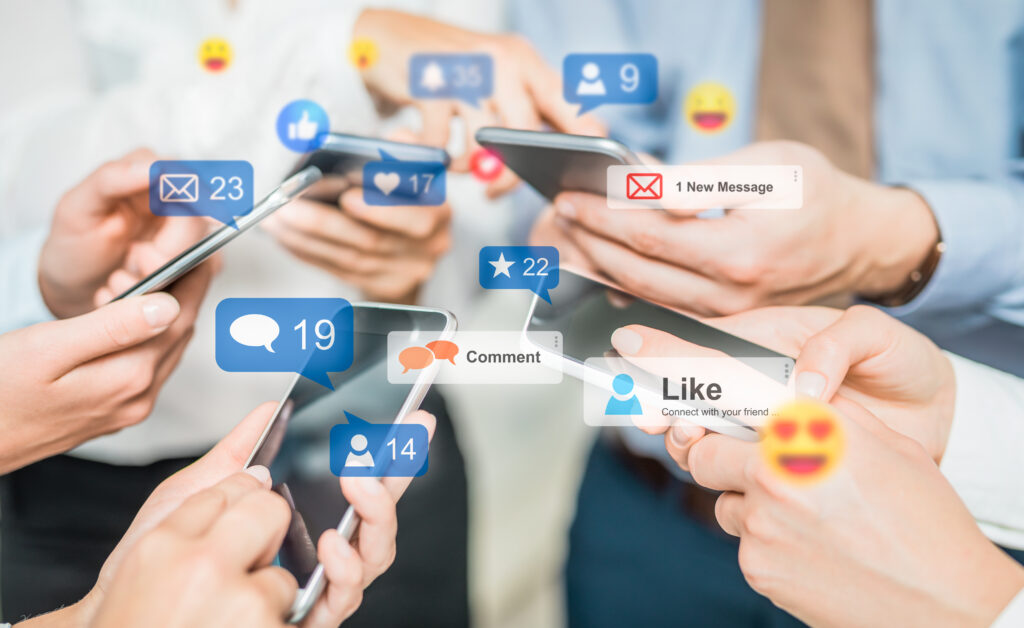In our fast-paced, interconnected world, social media has become an integral part of our daily lives; from keeping up with friends and family to staying informed about current events, social media platforms offer a convenient way to connect and engage. However, as we navigate the digital landscape, we must be mindful of social media’s impact on our mental health. At Massachusetts Mental Health Treatment Centers, we understand the intricate relationship between social media and mental health, and we’re here to offer support and guidance for those who may be struggling.
Understanding the Impact of Social Media on Mental Health
The impact of social media on mental health is a multifaceted issue that can vary greatly from person to person. For some, these platforms provide a sense of community and belonging, while for others, they can contribute to feelings of anxiety, depression, and isolation. In this blog post, we’ll explore how social media affects our mental well-being and consider the important question: “Does social media lead to poor mental health?”
The Double-Edged Sword of Social Media
Social media offers many benefits, from fostering connections to providing a platform for self-expression. However, it’s essential to recognize the potential downsides as well. The constant barrage of information and comparisons can be overwhelming, and the curated images of others’ lives can sometimes lead to self-doubt and insecurity.
The Positive Side
- Connection and Support
Social media can be a powerful tool for staying connected with loved ones, especially for those who may be geographically distant. It can also provide community and support, particularly for individuals who may feel isolated offline. - Access to Information
Platforms like Twitter, Facebook, and Instagram offer a wealth of information on countless topics. This can be empowering, especially when it comes to learning about mental health resources and finding communities of like-minded individuals.
The Negative Side
- Comparison and Envy
One of the most significant impacts of social media on mental health is the tendency to compare ourselves to others. The curated and often unrealistic portrayals of life on these platforms can lead to feelings of inadequacy and envy. - Anxiety and Depression
Studies have shown that excessive use of social media can contribute to symptoms of anxiety and depression. The constant need for validation through likes and comments can create a cycle of dependence and low self-esteem. - Sleep Disruption
The blue light emitted by screens can interfere with our sleep patterns, making it harder to fall asleep and stay asleep. Poor sleep can exacerbate mental health issues, creating a vicious cycle.
Does Social Media Lead to Poor Mental Health?
The relationship between social media and mental health is not straightforward. While excessive and mindful social media use can negatively impact mental well-being, it is also a valuable tool for communication and connection. The key lies in finding a balance that works for you.
At Massachusetts Mental Health Treatment Centers, we encourage individuals to be mindful of their social media habits and to seek help if they experience negative impacts on their mental health. It’s important to remember that you are not alone, and resources are available to support you.
Tips for Maintaining a Healthy Relationship with Social Media
- Limit Screen Time: Set boundaries around your social media use. Allocate specific times for checking your accounts and stick to those limits. This can help reduce the sense of constantly “on” and allow for more quality offline time.
- Curate Your Feed: Be selective about the accounts you follow. Choose those that inspire and uplift you rather than those that trigger feelings of inadequacy or negativity. Remember, you have control over what you see.
- Engage Mindfully: Approach social media with intention. Rather than scrolling mindlessly, engage in meaningful interactions and conversations. Share content that reflects your authentic self and connect with others in a positive way.
- Take Breaks: Periodically disconnect from social media to recharge and reset. Use this time to engage in activities you enjoy, such as reading, exercising, or spending time with loved ones.
- Seek Support: If social media negatively impacts your mental health, don’t hesitate to seek professional help. Speaking with a mental health professional can provide valuable insights and strategies for managing your relationship with these platforms.
Get Compassionate Mental Health Treatment Today
Navigating the complexities of social media and mental health can be challenging, but you don’t have to do it alone. Our mental health programs at Massachusetts Mental Health Treatment Centers are here to provide compassionate care and support every step of the way. Whether you’re struggling with anxiety, depression, or the impacts of social media, we’re here to help you find balance and reclaim your well-being.
If you or someone you love is experiencing difficulties related to social media use, please contact us. Our team of high-energy experts, combined with advanced technology, offers a unique approach to mental health treatment in Massachusetts that is both innovative and compassionate. Let’s work together to create a healthier, happier future.
Thank you for considering Massachusetts Mental Health Treatment Centers as your partner in mental health care. Reach out today and take the first step towards a brighter, more balanced life. We are here for you, every step of the way.










